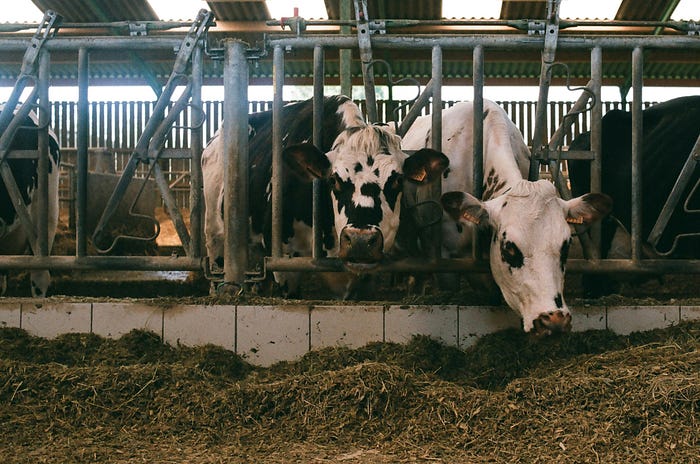Revolutionizing Livestock Nutrition: Aradhaya Food Recycle's Innovative Approach to Cattle Feed
In the heartland of India, where agriculture is not just a livelihood but a way of life, a silent revolution is underway in the domain of cattle feed manufacturing in India. Aradhaya Food Recycle, a name synonymous with innovation and sustainability, is spearheading this revolution with its groundbreaking approach to producing high-quality, nutritious feed for the country’s livestock.

Understanding the Need
India, being an agrarian economy, boasts one of the world’s largest livestock populations. Cattle, in particular, play a pivotal role in the rural economy, serving as a source of milk, meat, and labor. However, ensuring their optimal health and productivity relies heavily on their diet. Historically, the quality of cattle feed in India has been a concern, often leading to subpar nutrition and health issues among livestock.
Recognizing this critical gap, Aradhaya Food Recycle embarked on a mission to redefine the standards of cattle feed manufacturing in India. Their journey is not merely about producing feed but about crafting a sustainable solution that addresses the nutritional needs of livestock while also mitigating environmental challenges.
Innovative Approach
At the heart of Aradhaya Food Recycle’s approach lies innovation. Unlike traditional methods that rely heavily on conventional ingredients, this pioneering company harnesses cutting-edge technology and sustainable practices to create feed that is not only nutritionally superior but also environmentally friendly.
One of the key highlights of Aradhaya Food Recycle’s approach is its focus on recycling organic waste. Leveraging advanced techniques in waste management, the company sources organic residues from various industries, including agriculture and food processing, and converts them into high-quality feed ingredients. This not only reduces waste going to landfills but also minimizes the ecological footprint of cattle feed production.
Moreover, Aradhaya Food Recycle employs a meticulous process of ingredient selection and formulation. Each component of their feed is carefully chosen for its nutritional value, ensuring a balanced diet for cattle. From protein-rich grains to essential vitamins and minerals, every batch of feed undergoes stringent quality checks to meet the highest standards.
Sustainability at its Core
Beyond innovation, sustainability is deeply ingrained in Aradhaya Food Recycle’s ethos. The company operates with a holistic approach, striving to create a positive impact on both the agricultural sector and the environment. By repurposing organic waste into valuable feed ingredients, they not only reduce the burden on landfills but also contribute to the circular economy.
Furthermore, Aradhaya Food Recycle is committed to promoting responsible farming practices. Through educational initiatives and partnerships with local farmers, they advocate for sustainable livestock management techniques that enhance productivity while preserving natural resources.
Empowering Rural Communities
In addition to its environmental endeavors, Aradhaya Food Recycle plays a pivotal role in empowering rural communities. By providing farmers with access to high-quality, affordable feed, the company supports livelihoods and fosters economic growth in rural areas. Moreover, their initiatives aim to enhance the overall well-being of livestock, thereby improving the socio-economic fabric of rural communities.
Looking Ahead
As Aradhaya Food Recycle continues to expand its footprint across India, the impact of its innovative approach to cattle feed manufacturing in India is poised to be felt far and wide. With a relentless commitment to excellence, sustainability, and community empowerment, the company stands at the forefront of transforming the livestock nutrition landscape in India.
In conclusion, Aradhaya Food Recycle is not just a cattle feed manufacturer; it is a catalyst for change. Through its pioneering efforts, it is reshaping the way we think about livestock nutrition, paving the way for a more sustainable and prosperous future for both farmers and the environment.
.jpg)
Comments
Post a Comment